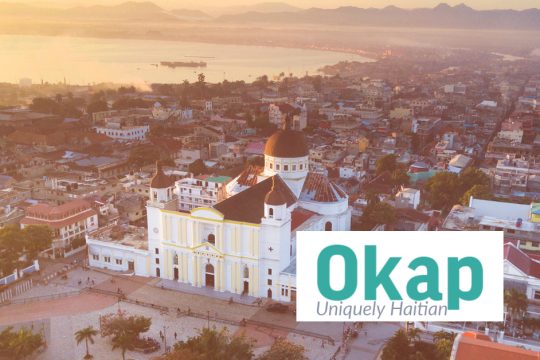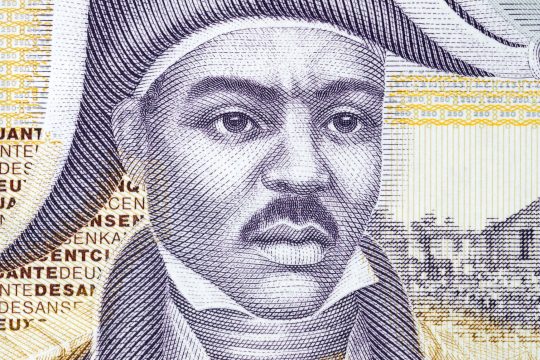On Sunday, April 12th, in the small Haitian village of Ravine-Sèche, Franck Étienne was born. It was the year 1936, just two years after the withdrawal of the United States’ occupation forces, and a period of growing national stability for the island nation. By the age of ten, Étienne had seen two democratic presidencies and the Hatian revolution of 1946. By twenty, he had lived through two more presidencies and, most importantly, the beginnings of the Duvalier era in 1956. It was this period in history that would see him become an activist, an artist and creator of the incredible works he is now famous for.
The eldest of eight children, Franck Étienne (later known as Frankétienne) grew up in Port-au-Prince where his mother worked as a street merchant. He was able to attend school, and the majority of his formative years were spent under the Duvalier dynasty. For nearly thirty years, the Duvalier family ruled over Haiti with an iron fist, using terror and violence to silence political opponents and dissenters. From 1957-1986, their government caused the deaths of over 30,000 Haitian citizens. While this oppressive regime raged on, Frankétienne wrote. He wrote in allegory and abstract and in 1975 published his first novel, Dézafi. The first novel ever written in Haitian Creole, Dézafi has since been translated into both English and French and has won numerous literary awards. The novel was a veiled allegory for the era of the Duvalier family and it alluded to the idea that Haitian citizens should rise up and revolt against the regime. Unfortunately, at the time only 20% of Haitians were able to read Haitian Creole, but this did not deter Frankétienne. He became a playwright, putting on shows and relaying activist messages to the Haitian populace through spoken word, much to the ire of Duvalier.
The Duvalier era ended in February 1986, after a rebellion forced Jean-Claude Duvalier into exile. Frankétienne continued to create. In 2010, he painted Désastre, an abstract work representing the victims of the 2010 earthquake. In 2011, he took to canvas once again to create Difficile émergence vers la lumière, to represent the victims of the hurricanes that devastated the island.
Now known as the “Father of Haitian Letters”, Frankétienne would go on to be made a commander of the “Ordre des Arts et des Lettres” in France, and named a UNESCO Artist for Peace in 2010. Frankétienne remains a prolific artist and writer today, consistently giving a voice to those who are rarely heard. To quote the author himself, from his novel Mûr à Crever, “Whirlwinds. Vertigos. Storms. My life beats to the rhythm of turbulences.”


Marleen is a Haitian Creole translator and Language Advocate. After completing her Graduate Studies at the Institut d’Etudes Politiques de Paris (SciencesPo), she decided to launch Creole Solutions to focus on her mission to promote Haitian language and culture. She worked for the Consulate General of Haiti in Chicago and the United Nations Environment Program in Haiti.
Marleen se yon tradiktris k ap travay pou defann dwa lang. Apre li te fini ak etid siperyè li nan Institut d’Etudes Politiques de Paris (SciencesPo), Marleen te deside lanse Creole Solutions pou konsantre sou misyon li pou voye lang ak kilti lakay monte. Avan sa li te travay pou Konsila Jeneral Ayiti nan Chikago ak Pwogram Nasyonzini pou Anviwònman an Ayiti.








Great read, looking forward to learning my history.